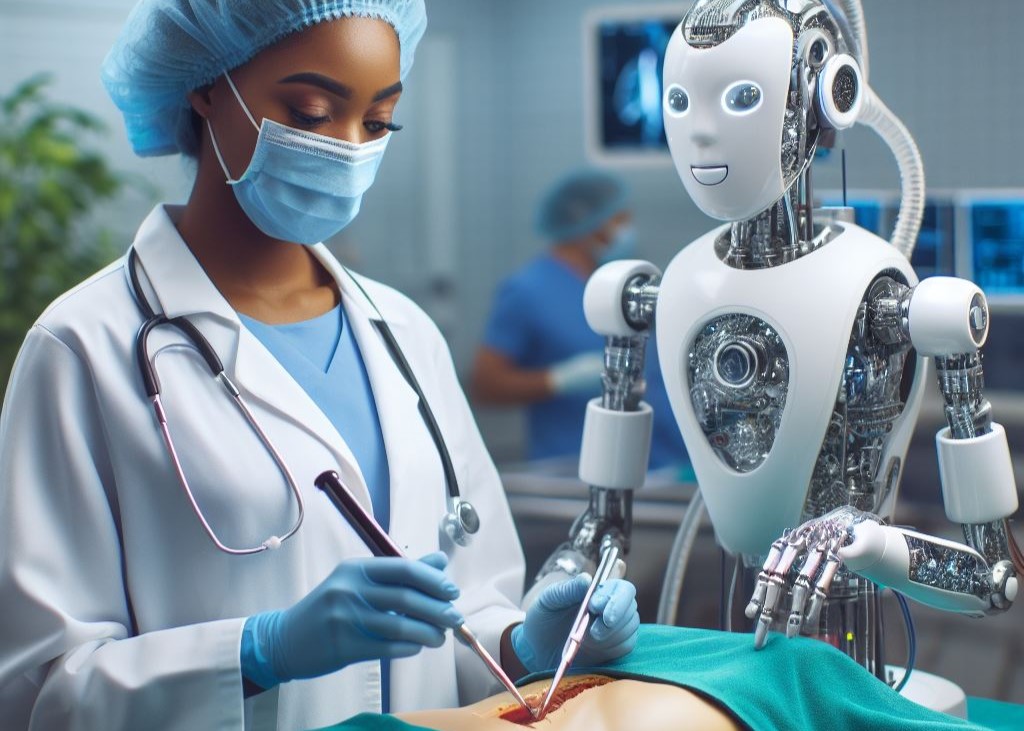Health Tech
AI paves way for brighter future
for patients
AI, combined with High Performance Computing, can revolutionise patient care, writes DOUG WOOLLEY, GM of Dell Technologies SA.
The driving force behind Artificial Intelligence (AI) is its potential to accelerate human progress and enhance our experiences in all areas of our lives, and in no area is this more significant than healthcare.
The healthcare sector has seen unbelievable progress in the last decade, including the rapid cross-border innovation that saw us through the COVID-19 crisis.
However, factors including increased population density and rising healthcare costs mean that we continue to face greater challenges to our health. For the healthcare and life sciences industry, this means pressure to treat more patients, more cost-effectively and with better results.
The good news is that we are in a strong position to face these challenges. Advances in genomics, bioinformatics, microscopy, medical imaging and many other areas have created an avalanche of data that, if captured and analysed correctly, can be used to significantly improve patient outcomes. Advanced computing technologies, such as AI algorithms running on high performance computing (HPC) systems, are the key to unlocking the true value of medical data, which in turn will save lives and improve overall health.

Doug Woolley, General Manager, Dell Technologies South Africa
A future of personalised healthcare
Using AI combined with HPC, clinicians can develop truly bespoke treatment plans by analysing vast data sets, discovering unique patterns and deriving insights at a speed no human could process. It has the potential to revolutionise patient care, promising improved efficiencies as well as more predictive and accessible care. Previously, healthcare providers have relied on a one-size fits all approach, treating the illness rather than the individual. Innovative diagnostics and bespoke treatments have the potential to either prevent a condition arising from the outset or, failing that, to allow much earlier diagnosis and treatment highly tailored to each individual.
HPC is a key part of the personalisation puzzle, as it enables clinicians to derive actionable insights from large, complex data sets at lightning speed. In fact, genomic analysis that previously took days can now be achieved in minutes. Whether using machine learning or AI to analyse medical images, detect patterns across populations, design medical devices or solve problems such as how to predict protein structures, you need to be able to run compute-intensive workloads at high speed.
Electronic health record (EHR) systems, for example, are a potential source of real-time insight but may store millions of confidential patient records across a decentralised infrastructure. As the volume of data grows, healthcare organisations can provide personalised care at lower costs by adopting new systems capable of processing large, disparate sources of information. HPC is providing healthcare organisations with the performance and efficiencies needed to turn data into actionable intelligence in near real time to speed discoveries and improve care.
Personalisation doesn’t stop there – it can predict the future. By looking at patients’ unique genomic make-ups, doctors could design specific methods of prevention, diagnosis and treatment, estimating an individual’s disease risk and developing tailored reactive, or perhaps even proactive drug therapies. Advances in this space in the coming decade could make personalised diagnostics based on an individual’s genetics more accessible than ever.
Trailblazing AI technologies
We’re already seeing many exciting healthcare AI examples in practice, including within cancer diagnostics and treatment. Cancer affects one in four South Africans, a figure that is only set to increase over the next 10-20 years. AI offers better detection and better treatment, including AI tools that spot tumours and lesions doctors might miss.
AI has already given rise to innovations in robot-assisted surgery to improve patient outcomes as well. Integrating AI and robots in surgical processes helps amplify a surgeon’s effectiveness. Data from pre-op medical records can be analysed by algorithms to assist with planning procedures and guide the team as it performs the surgery.
The future of AI powered healthcare requires collaboration
While the future of AI-powered healthcare, underpinned by HPC, is exciting, the question remains: is the medical community adequately prepared for this revolution? The industry is currently valued at $20.65-billion, but is expected to grow to $187.95-billion by 2023. In South Africa, the AI in Healthcare market is projected to grow from $40-million in 2022 to $950-million by 2030.
To realise its potential, the industry will need to invest in technology and skills. This is where joining forces with technology partners and vendors will be key, as they will be able to bring their AI skills and expertise to help quickly scale AI projects.
With the technology and healthcare industry working together, the next generation of patients will see a level of care that, until recently, we could only dream of. Now is the time to collaborate, innovate and bring about the AI-powered healthcare revolution.

















